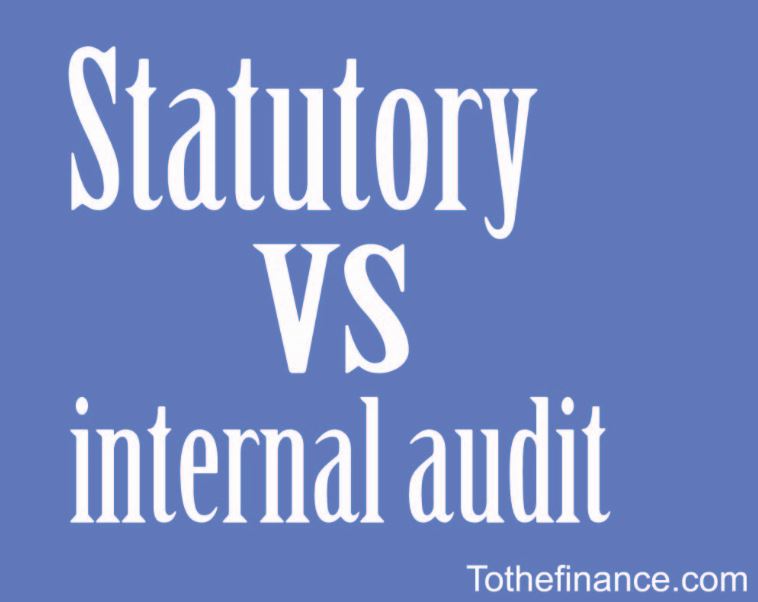Following are the facts for statuatory audit vs.internal audit.
| Statutory audit | Internal audit |
|---|---|
| It is required by law. The provisions of the company ordinance require companies to hire independent auditors for the audit of financial statement. | It is not required by law except in the case of publicly listed companies. The management of the company has the discretion to set up an internal audit function. |
| It can only be executed by an independent firm of chartered/public accountants. | It can be executed by employees of the company and it can also be outsourced to an independent firm of chartered/public accountants. |
| This type of audit aims to assess the accuracy of the financial statement. So, the users of financial statements can rely on and use financial statements for decision-making. | This type of audit aims to assess the efficiency of business operations, implemented controls, and related risks. |
| This audit function reports to shareholders of the company. | This audit function reports to the audit committee of the company. |
| The purpose of a statutory audit is to reasonably assure there is no material misstatement in the financial statement of the company. | The purpose of the internal audit function is to implement effective controls on the identified risk. |
| The external auditors need to start and finish the audit on specific dates, after the preparation of the final accounts. | The management is free to select areas of audit for the internal audit and areas as well. |
| The external auditor needs to be a qualified professional accountant or member of the professional accounting body. | There is no specific qualification required for the internal auditor. However, there is a need to ensure that they are competent and experienced in understanding and executing the audit function. (This fact is not applicable to the internal auditors of a publicly listed company). |
| The scope of the external audit is limited to the financial statement. They aim to find errors/misstatements in the financial statement and pass correcting journal entries. | The scope of internal audit is broader. They aim to assess risk, implement controls, and help to implement efficient controls. |
| The remuneration and appointment for the external auditor is decided by shareholders in AGM. | The remuneration and appointment for the internal auditor is decided by the management of the company. For a listed company, the audit committee oversees these matters. |
| Statutory auditors report on the key audit matters of the company. | Internal auditors report on the observations identified, and recommendations for the controls. |
Conclusion on statuatory audit vs.internal audit
A statutory audit is required by the law and an internal audit is optional for private companies. The purpose of the statutory auditor is to reasonably assure there are no material misstatements in the financial statement.
The remuneration and appointment of the external auditors fall in the hands of shareholders. On the other hand, the appointment and remuneration of the internal audit function are in the hands of management and the audit committee for listed companies.
